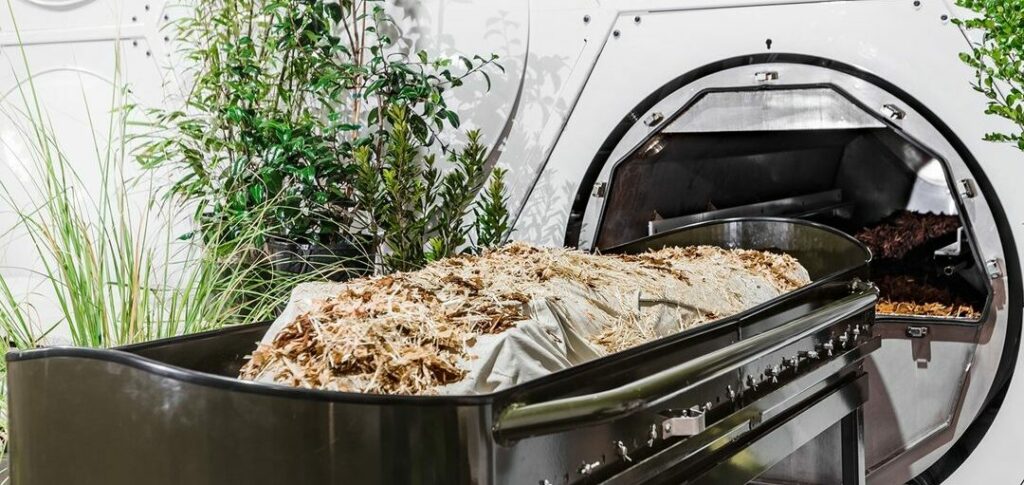@curtonews How does human composting work? This may seem a little morbid, but it has a sustainable basis! O #CurtoNews ♬ original sound – Curto News
How does it work?
Also known as 'natural organic reduction', the practice consists of transforming human remains into soil rich in nutrients, through natural acceleration.
ADVERTISING
The method is very simple.
First, the body is placed inside a closed compartment with biodegradable materials inside, such as leaves, pieces of wood, straw and alfalfa. It is located in this location, with air intake, and is subjected to high temperatures – above 50º C – allowing microbes and bacteria to carry out the decomposition work more quickly. This process, which lasts about a month, results in the formation of organic matter rich in nutrients.
Then, the material is left to dry for a few weeks, before being handed over to the family. Thus, it can be used for planting trees and fertilizing gardens and parks, for example.
No objects
To that natural organic reduction is done, there cannot be any element potentially harmful to nature: the body must be without clothing or accessories, and objects such as implants, pacemakers and prostheses must be removed. So no belongings with sentimental value.
ADVERTISING
More sustainable alternative
A composting promebe a more sustainable method in relation to other ways of disposing of the body.
Cremation, for example, contributes to the emission of greenhouse gases, as it requires a lot of fuel and results in the emission of millions of tons of carbon dioxide (CO2) per year.
Traditional cemeteries and burials also pose a threat to nature and health, as they can contaminate groundwater and thus transmit diseases.
ADVERTISING
A Recompose, a North American company that offers the service, states that the composting can save a ton of carbon compared to a cremation or traditional burial.
Legalization
The State of Washington was the first in the United States to legalize the practice, in 2019, followed by Colorado and Oregon, in 2021, and Vermont and California, last year. More recently, the State of New York joined this list, after its governor, Democrat Kathy Hochul, signed the legislation into law.
No Brazil, a bill was proposed in 2019 that authorized the adoption of the practice. However, it was withdrawn by the author, federal deputy Renata Abreu (Pode-SP), when it was still being processed in the Chamber of Deputies.
ADVERTISING
Sociocultural – mainly religious – and economic reasons can make it difficult to adopt the process of composting in Brazil. In the USA, the service costs around US$7. 😯
there are also those questionand about the possibility of disease transmission through the material generated natural organic reduction.
And you? Would you consider this option? 🤔
Curto curation:
- New York approves composting of human bodies (BBC*)
- How Human Composting Can Reduce Death's Carbon Footprint (CNN*)
Read also
(🇬🇧): content in English
(*): Content in other languages translated by Google Tradutor
(🚥): may require registration and/or subscription
Click here and download the app Curto News for Android.
ADVERTISING

Receive news and newsletters do Curto News by Telegram e WhatsApp.




